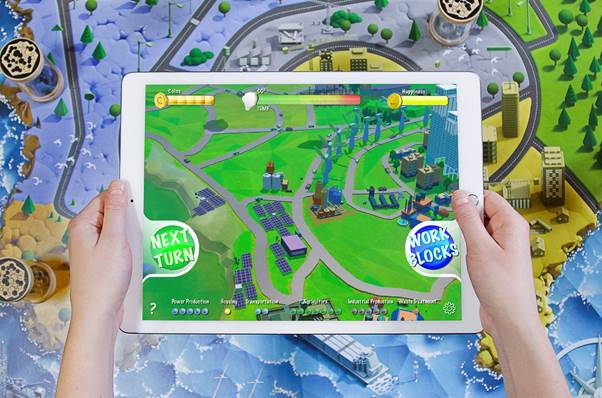San Francisco High Schoolers Tap AR to Tackle Environmental Issues
In San Francisco, a city that has been leading the fight to slow climate change, high school students will soon spend class time using augmented reality (AR) to figure out how to reduce greenhouse gas emissions.

Image Credit: Neste.
Lincoln High School recently received EduCycle, an AR gaming platform that challenges students to reduce the United States’ carbon dioxide emissions to the level specified in the 2015 Paris Agreement on climate change — 26 percent below 2005 CO2 levels by 2025. Students will start by learning to reduce their personal carbon footprint: They’ll use a physical map board, 3D printer markers and a mobile app accessible via iPad to see how their own choices “come alive” in a virtual city, according to the game website.
EduCycle was designed by Finland-based oil manufacturing services company Neste, as part of the company’s initiative to find innovative solutions to create new kind of renewable products and services. The game is based on research data by the Intergovernmental Panel on Climate Change and designed in partnership with a Finnish digital animation and visual effects studio.
When Neste donated the game to Lincoln High School last week, the San Francisco Department of the Environment (SFDE) was present at the event.
"San Francisco school students are some of our greatest environmental champions because they learn about the importance of protecting nature in the classroom," said Deborah Raphael, director of SFDE, in a news release. "Activities that help our students better understand the impacts of climate change offer meaningful opportunities for students to dig deeper and think even bigger about how they might make a difference for their generation and generations to come."
To learn more about the game, watch the video below or visit the Neste site.
About the Author
Sri Ravipati is Web producer for THE Journal and Campus Technology. She can be reached at [email protected].